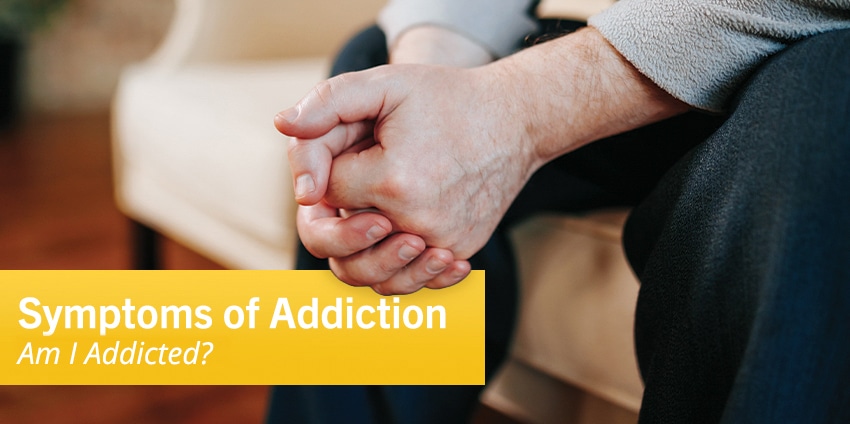Symptoms of Addiction: Am I Addicted?
Perhaps the biggest myth about drug and alcohol addiction , also called substance use disorder, is that those who are suffering simply lack willpower or moral principles. However, substance use disorder is a complex disease that can profoundly affect an individual’s life. According to the National Institute on Drug Abuse (NIDA), substance use disorder is a “chronic, relapsing disorder characterized by compulsive drug seeking and use,” despite the harmful consequences to the individual who is addicted and to those around them. If you are concerned that you, or someone you know, may be struggling with addiction, there are several signs and symptoms that you can look out for.
Symptoms of Addiction
The Mayo Clinic names the following as potential indicators of substance use disorder, among others:
- Feeling that you have to use the drug [or alcohol] regularly — daily or even several times a day
- Having intense urges for the drug that block out any other thoughts
- Over time, needing more of the drug to get the same effect
- Taking larger amounts of the drug over a longer period of time than you intended
- Making certain that you keep a supply of the drug
- Spending money on the drug, even though you can’t afford it
- Not meeting obligations and work responsibilities, or cutting back on social or recreational activities because of drug use
- Continuing to use the drug, even though you know it’s causing problems in your life or causing you physical or psychological harm
- Doing things to get the drug that you normally wouldn’t do, such as stealing
- Driving or doing other risky activities when you’re under the influence of the drug
- Spending a good deal of time getting the drug, using the drug, or recovering from the effects of the drug
- Failing in your attempts to stop using the drug
- Experiencing withdrawal symptoms when you try to stop taking the drug
If you are experiencing these symptoms of addiction, it is important to seek help as soon as possible. Addiction can be treated, but it is a chronic condition that often requires ongoing support and management. A mental health professional or addiction specialist can help you to understand your options for treatment and recovery.
The First Step Toward Recovery
Has a family member mentioned this observation to you out of concern? Maybe you’re aware that your substance use is more than the average person’s, but you still feel like you’re in control. Whatever the case may be, asking yourself “am I addicted?” is a difficult question to face. Admitting that you’re struggling with substance use disorder is even harder, but it’s the first step towards recovery. If you or a loved one are suffering, reach out today. We want to help.


